Mind MGMT, vol. 1
After we read Red Handed earlier in the year, my wife remarked that Matt Kindt must be some kind of genius. I imagine my response must have been something like, "Well, yeah." Because of course he is. Super Spy provided ample evidence and Red Handed nailed that coffin shut tight. Even though it was already being released in monthly format, neither of us had taken the opportunity to read Mind MGMT—even though Matt Kindt is one of a small handful of creators who make up the collection of My Favourite Working Creators.
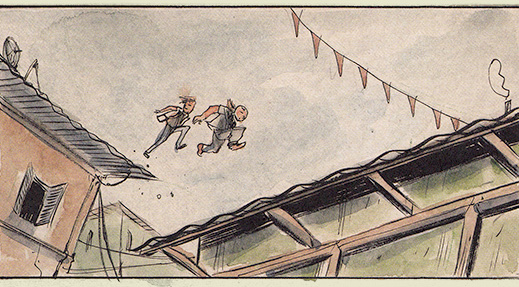
I heard Kindt interviewed last February at Wonder-Con in Southern California. It was a delightful panel, just Kindt and a moderator discussing Kindt's life, his trajectory, and his several projects. In speaking of Mind MGMT, which I hadn't yet read, Kindt talked about how he wanted to create the kind of thing that would've gotten him back into comic book stores. He talked about how the experience of the individual issues would be different and probably better than reading it as a collection. These issues would be artifacts in their own right. They would be important. It sounded delightful.
Yet: it still wasn't enough to get me back into comic book stores. I just can't do it. I can't put myself through that again, waiting a whole month in between slim chapters of an evolving story. I find myself both too anxious for the next installment and too distanced from the details of a story if I only get to touch parts of it once per month. Imagine reading something like Wind-Up Bird Chronicle or Cat's Cradle one chapter per month. The entire experience of those books would fall apart. No, I have to read in collections and I prefer for a series to be nearly complete before I even look at its first volume. Starting on a volume 1 when volume 2 isn't even on shelves is not my bag at all (and it's why I haven't touched Vaughan and Staples' Saga yet).
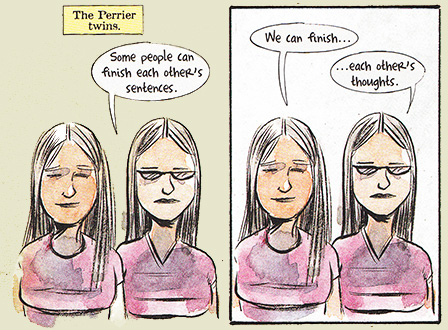
So it was a bit of a bad play for me to ask for volume 1 of Mind MGMT for my birthday last month. I hate reading just a first volume of a book. And worse still do I hate reviewing just a single volume of a series. I do it occasionally of course, but it's so rare that you can tell the worth or direction of a story from a mere five or six chapters that I'm always reluctant. It would be like asking someone to review Moby Dick based on the first two chapters alone.
Mind MGMT is a bit different though. While I couldn't guess the ultimate aims of the story and it's difficult to know which characters beyond perhaps Meru (the book's so-far central figure) will be around even twenty chapters from now, Kindt's work leaves a distinctive taste—and one that is every bit worth talking about, even at this early stage.
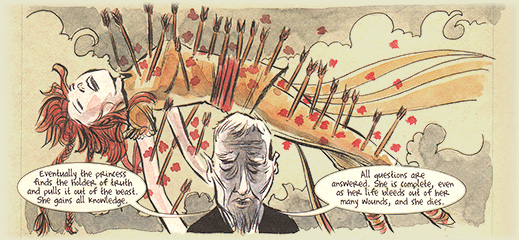
A while back, I described the way I see Kindt as a creator:
Kindt strikes me as foremost an Idea Man. Everything heís shown us so far paints him as prodigiously imaginative. He has big ideas for his overarching story, for the forms those stories take, and for some of the intricacies of how his pages and panels will lay out. I donít look for any improvement on his part in this area. He has, so far as Iím concerned, arrived. If not perfect for what heís doing, his ideas are close enough that we mere mortals cannot distinguish well enough to complain.
Mind MGMT does nothing to offer counter-argument to this conception of its creator. Kindt does show himself to be again prodigiously imaginative—and perhaps still moreso than in prior works. His attention to the intricacies of both his plot and the world he's built for it to play out in is stunning. Mind MGMT is exactly the way I would have written Meru's story if I were better than I am.11I actually have my own writing strengths, I'm sure. It's just hard not to sit slack-jawed and self-defeated when one comes across so sure-footed and designed a story as what Kindt regularly produces. It's smart without ever passing into heady. It's fantastic without breaking the conventions of believability. When I was in college, Mind MGMT would have blown my mind. The highest compliment I can pay it is to affirm that Mind MGMT blows my mind today, twenty years after my freshman year of college.
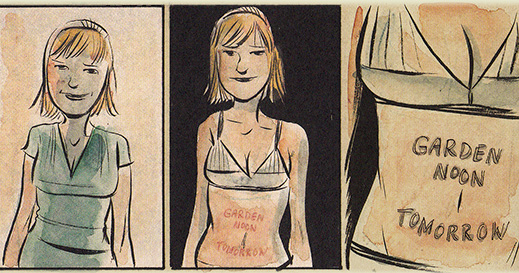
Mind MGMT, like a lot of contemporary works, explores issues of identity. Or at least it does so in this first volume. I suspect the trend will continue. Kindt uses a couple different characters (Meru and Henry Lyme22A nice nod to Graham Greene's The Third Man.), investigating the ways in which people view themselves—though through pretty extreme vantage points (we don't all possess extraordinary abilities or live through extraordinary circumstances). I look forward to seing how Kindt will continue to explore the idea of the self and its perception of everything Other. As with all he approaches, the author interacts with these things with a spark of rare imagination.
I've been reading Brandon Graham's Prophet as the volumes come out (another ill-sorted decision on my part for the reasons previously outlined). Graham has an unbelievable sense of sci-fi creationism. He builds worlds at the twitch of an eye and spits out mind-bogglingly rich cultures with who knows how little effort. It certainly seems effortless from the reader's end. Matt Kindt does the same in the world of extrahuman cloak-and-dagger. He builds figures with extranormal gifts that lurch from the page with their mystery and motives. He probably thinks very hard about what these characters' powers would mean to the lives of those who wield them, but none of that effort comes through as effort. It just reads as seamless, off-handed, perfect world-building. I am incredibly impressed.
And I'm incredibly heartbroken that I jumped onto this series as early as I did. The idea that I will have to wait eight months or more between volumes destroys me. Because this is a series that I will want to own every piece of. And it's one that I will undoubtedly read from start to finish again every time a new volume releases.
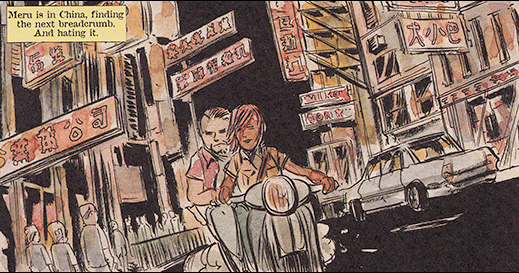
After reading Red Handed my wife described Matt Kindt as "some kind of genius." I agreed, readily. The thing was: neither of us had yet read Mind MGMT. We thought we knew what genius looked like. We were so naive.
Good Ok Bad features reviews of comics, graphic novels, manga, et cetera using a rare and auspicious three-star rating system. Point systems are notoriously fiddly, so here it's been pared down to three simple possibilities:
3 Stars = Good
2 Stars = Ok
1 Star = Bad
I am Seth T. Hahne and these are my reviews.
Browse Reviews By
Other Features
- Best Books of the Year:
- Top 50 of 2024
- Top 50 of 2023
- Top 100 of 2020-22
- Top 75 of 2019
- Top 50 of 2018
- Top 75 of 2017
- Top 75 of 2016
- Top 75 of 2015
- Top 75 of 2014
- Top 35 of 2013
- Top 25 of 2012
- Top 10 of 2011
- Popular Sections:
- All-Time Top 500
- All the Boardgames I've Played
- All the Anime Series I've Seen
- All the Animated Films I've Seen
- Top 75 by Female Creators
- Kids Recommendations
- What I Read: A Reading Log
- Other Features:
- Bookclub Study Guides










